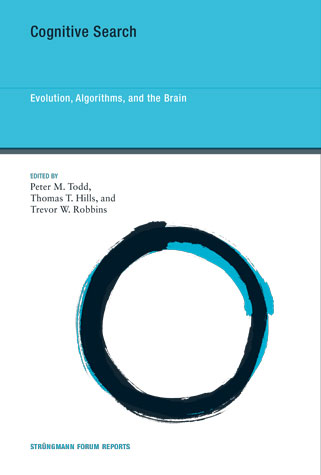- Home
- Publications
- Intrusive Thinking
- Deliberate Ignorance
- Youth Mental Health
- Neocortex
- Interactive Task Learning
- Agrobiodiversity
- Emergent Brain Dynamics
- Rethinking Environmentalism
- Cultural Nature of Attachment
- Investors and Exploiters in Ecology and Economics
- Computational Psychiatry
- Complexity and Evolution
- Pragmatic Turn in Cognitive Science
- Translational Neuroscience
- Trace Metals and Infectious Diseases
- Pathways to Peace
- Rethinking Global Land Use
- Schizophrenia
- Cultural Evolution
- Language, Music, and the Brain
- Evolution and The Mechanisms Of Decision Making
- Cognitive Search
- Animal Thinking
- Disease Eradication in the 21st Century
- Envisioning Healthcare 2020
- Dynamic Coordination
- Linkages of Sustainability
- Origin of Syntax
- Perturbed Clouds
- Better Than Conscious?
- Our Board
- Contact
- Impressum / Imprint
- Privacy Notice
- Publications
- Intrusive Thinking
- Deliberate Ignorance
- Youth Mental Health
- The Neocortex
- Interactive Task Learning
- Emergent Brain Dynamics
- Agrobiodiversity
- Rethinking Environmentalism
- Cultural Nature of Attachment
- Investors and Exploiters in Ecology and Economics
- Computational Psychiatry
- Complexity and Evolution
- Pragmatic Turn in Cognitive Science
- Translational Neuroscience
- Trace Metals and Infectious Diseases
- Pathways to Peace
- Rethinking Global Land Use
- Schizophrenia
- Cultural Evolution
- Language, Music, and the Brain
- Evolution And The Mechanisms Of Decision Making
- Cognitive Search
- Animal Thinking
- Disease Eradication in the 21st Century
- Better Doctors, Better Patients, Better Decisions
- Dynamic Coordination in the Brain
- Linkages of Sustainability
- Biological Foundations and Origin of Syntax
- Clouds in the Perturbed Climate System
- Better Than Conscious?

MIT Press »
Cognitive Search
Evolution, Algorithms, and the Brain
Edited by Peter M. Todd, Thomas T. Hills, and Trevor W. Robbins
Over a century ago, William James proposed that people search through memory much as they rummage through a house looking for lost keys. We scour our environments for territory, food, mates, and information. We search for items in visual scenes, for historical facts, and for the best deals on Internet sites; we search for new friends to add to our social networks, and for solutions to novel problems. What we find is always governed by how we search and by the structure of the environment. This book explores how we search for resources in our minds and in the world. The authors examine the evolution and adaptive functions of search; the neural underpinnings of goal-searching mechanisms across species; psychological models of search in memory, decision making, and visual scenes; and applications of search behavior in highly complex environments such as the Internet. As the range of information, social contacts, and goods continues to expand, how well we are able to search and successfully find what we seek becomes increasingly important. At the same time, search offers cross-disciplinary insights to the scientific study of human cognition and its evolution. Combining perspectives from researchers across numerous domains, this book furthers our understanding of the relationship between search and the human mind.
ISBN-13: 9780262018098
Photographie: U. Dettmar
Lektorat: BerlinScienceWorks
Additional support is gratefully acknowledged from Deutsche Forschungsgemeinschaft (German Science Foundation).

"We desperately need a better understanding of how people search for information in the real world. After all, intelligent search and stopping search, both internally and externally, are keys to adaptive behavior. This book provides a comprehensive view of current knowledge and, importantly, lays out the direction for future research on 'satisficing' (as opposed to 'optimizing') search mechanisms in humans and other species."
—Gerd Gigerenzer
Director, Max Planck Institute for Human Development
"This collection significantly broadens and deepens our scientific understanding of search as it manifests in behavior, biology, cognitive processes, the brain, and computation. Twenty years ago, the idea that one kind of search, such as information search, was like another, such as food foraging, was typically met with resistance that focused on differences (after all, information is not food). This book demonstrates the rich tapestry of explanations of search that cuts across fields, and the papers provide fertile opportunities for a new generation of researchers to reach across disciplines to find exciting and productive concepts and models."
—Peter Pirolli
Research Fellow, Palo Alto Research Center